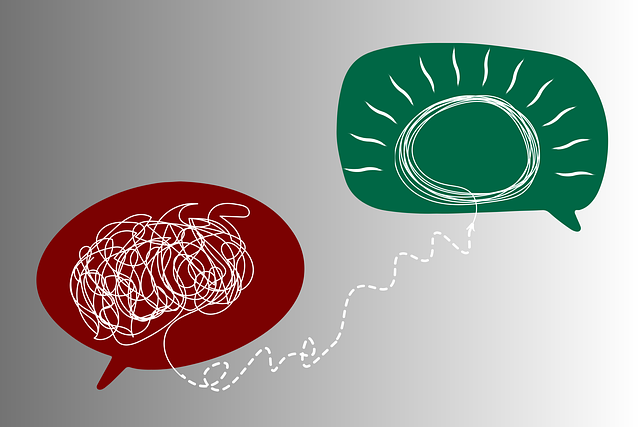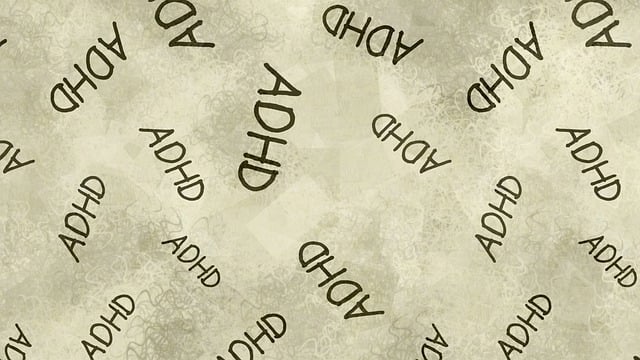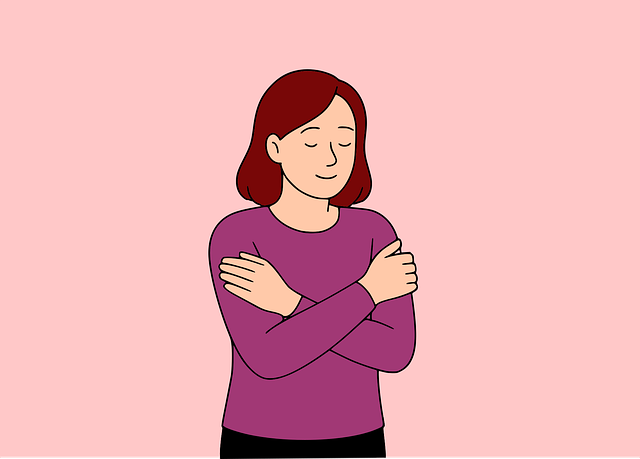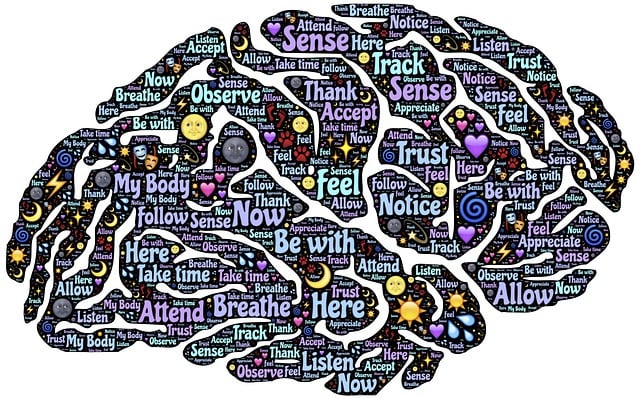Media portrayals significantly shape public perceptions of mental health, often perpetuating stereotypes that lead to stigma. Underrepresenting therapies like Parker Gender-Affirming Care Therapy (PGACT) may contribute to the neglect of transgender mental health struggles. Accurate and diverse media depictions are crucial for fostering awareness, empathy, and access to effective stress reduction methods. PGACT offers a groundbreaking approach to mental health support for transgender individuals, focusing on gender identity affirmation and structured emotional regulation techniques. To ensure empathetic portrayals, creators should integrate individuals with lived experiences and promote positive thinking within narratives. A collaborative effort between mental health experts, content creators, and media organizations is needed to revolutionize media's sensitivity towards mental health, inspiring a more compassionate society.
In today’s media landscape, the representation of mental illness plays a pivotal role in shaping societal perceptions and understanding. This article explores the profound impact of media portrayals on mental health narratives and introduces innovative solutions to challenge stereotypes. We delve into groundbreaking approaches like Parker Gender-Affirming Care Therapy, offering revolutionary methods for accurate representation. Additionally, we discuss strategies for fostering change through collaborative efforts to enhance media sensitivity towards mental health issues.
- Understanding the Impact of Media Portrayals on Mental Health Perception
- Parker Gender-Affirming Care Therapy: A Revolutionary Approach
- Strategies for Accurate and Empathic Mental Illness Representation in Media
- Fostering Change: Collaborating to Enhance Media Sensitivity Towards Mental Health
Understanding the Impact of Media Portrayals on Mental Health Perception

Media portrayals play a significant role in shaping public perceptions about mental health and well-being. The way mental illness is depicted in films, television shows, and news media can influence how individuals understand and respond to these conditions. Unfortunately, many traditional media representations fall short by perpetuating stereotypes, offering an inaccurate picture of what it’s like to live with a mental health challenge. This can lead to stigma, misinformed assumptions, and even barriers to seeking help.
For instance, a lack of representation of gender-affirming care therapies, such as Parker Gender-Affirming Care Therapy, in media may contribute to the underrepresentation of transgender individuals’ mental health struggles and successful recovery journeys. Promoting accurate and diverse portrayals is crucial for fostering mental health awareness and encouraging empathy among viewers. By showcasing authentic narratives that highlight the human experience, media can play a powerful role in shaping more compassionate and supportive societies. This, in turn, may lead to increased access to effective stress reduction methods and better overall mental well-being for all.
Parker Gender-Affirming Care Therapy: A Revolutionary Approach

The Parker Gender-Affirming Care Therapy (PGACT) is a revolutionary approach that offers a transformative solution to mental illness representation in media and society at large. This innovative therapy challenges traditional norms and promotes inclusivity by focusing on affirming individuals’ gender identities, regardless of their physical sex attributes. By integrating this practice into the healthcare system, mental health professionals can play a pivotal role in destigmatizing gender dysphoria and providing much-needed support to the transgender community.
PGACT goes beyond simple counseling; it involves structured techniques aimed at improving emotional regulation and fostering better coping mechanisms. This therapeutic method encourages patients to develop personalized strategies for managing stress and preventing burnout, which are significant concerns among mental health professionals. By implementing risk management planning tailored to each individual’s needs, PGACT ensures that the well-being of both therapists and clients is prioritized, thereby facilitating a healthier and more productive treatment environment.
Strategies for Accurate and Empathic Mental Illness Representation in Media

Media has a significant impact on shaping societal perceptions, and accurate representation of mental illness is crucial for fostering understanding and compassion. To ensure empathy in media portrayal, creators can adopt several strategies. Firstly, involving individuals with lived experiences of mental health challenges in the production process brings authenticity to storytelling. This includes hiring writers, directors, and consultants who can provide insights into the nuances of various conditions.
Secondly, promoting positive thinking and compassion cultivation practices within narratives can help combat stigma. Portraying characters engaging in mental wellness coaching programs or participating in Parker Gender-Affirming Care Therapy can offer viewers relatable, hopeful representations. By showcasing recovery journeys with complexity and authenticity, media can encourage a more nuanced understanding of mental illness and inspire real-world conversations on mental health.
Fostering Change: Collaborating to Enhance Media Sensitivity Towards Mental Health

Media plays a significant role in shaping societal perceptions, and its representation of mental illness can either perpetuate stereotypes or foster understanding. To challenge harmful narratives, there’s a growing need for collaboration between mental health professionals, content creators, and media organizations. By integrating Parker Gender-Affirming Care Therapy and other innovative practices into storytelling, the industry can develop more nuanced and accurate portrayals of individuals facing mental health challenges.
This collaborative approach should encompass various strategies, including Empathy Building Strategies that encourage authentic representation, Communication Strategies to ensure accurate depiction, and even practices like Mindfulness Meditation to promote positive mental health imagery. Together, these efforts can revolutionize media’s sensitivity towards mental health, inspiring a more compassionate and supportive society.
Media has a significant impact on shaping societal perceptions of mental illness. By implementing strategies for accurate and empathetic representation, such as Parker Gender-Affirming Care Therapy, we can challenge harmful stereotypes and foster understanding. Collaborating across industries and communities is crucial to enhancing media sensitivity towards mental health, ultimately promoting a more supportive and inclusive environment for all.














